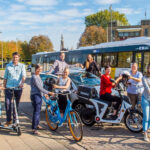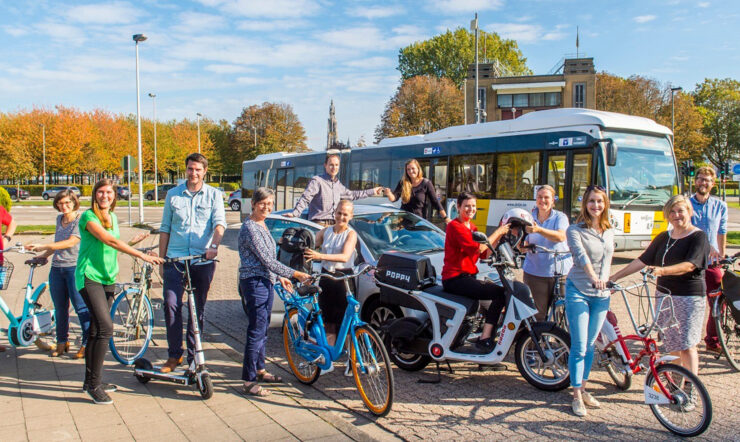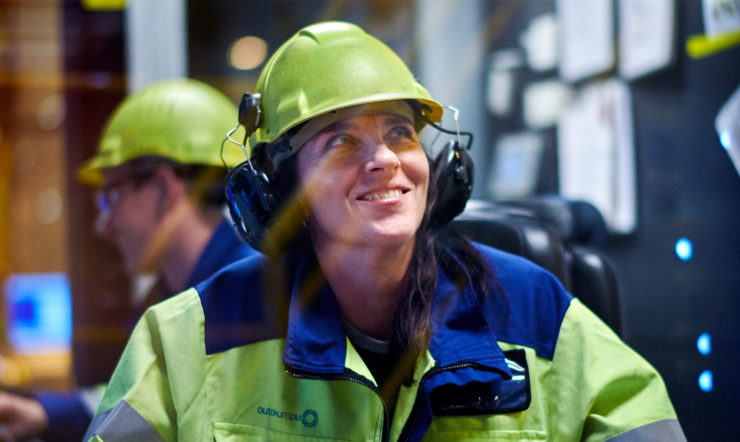In recent years, the Danish public sector has been focusing intently on its contribution toward reducing negative environmental impact, thereby helping to achieve Denmark’s ambitious climate goals. One of the ways to do this is by optimizing sustainable public procurement, which is worth over DKK 360 billion annually.
By harnessing Microsoft Power BI and Microsoft Azure data services, KMD offers public authorities a user-friendly, scalable overview of their procurement. This helps to achieve the ambition of sustainable, public procurement.
 “The cloud enables us to try things out, add new services, and deselect others. This offers a whole new flexibility and scalability and improves user satisfaction”
“The cloud enables us to try things out, add new services, and deselect others. This offers a whole new flexibility and scalability and improves user satisfaction”
—Jesper Bækgaard, Head of Section, Spend Analysis, KMD
Transparency helps us make the right choices
A typical challenge for public authorities is to compare carbon footprints across thousands of products and services in order to make the right choices while maintaining awareness of the entailed costs—money-wise and climate-wise.
That is why KMD uses Power BI, as it helps to provide transparency in the data behind a given product number. When combined with advanced machine learning (artificial intelligence) models in Microsoft Azure, it can provide insight into, for example, the carbon footprint of a given product group or service, the proportion of organic food, TCO, etc. This type of transparency can help municipalities and other bodies that have their own climate goals they need to meet. And KMD is experiencing growing demand thanks to greater insight into how procurement policies can better contribute to the energy transition.
But Spend Analysis also provides a generally clearer picture of who the main suppliers are, which categories the organization spends most on and whether the agreed prices have been invoiced, etc.
We have also learned a lot along the way
KMD has converted KMD Spend Analysis to Microsoft Azure. This was a complex challenge, requiring a great deal of time and effort. But the conversion process has also been a learning process for KMD, which now has access to in-house skills that can be used to help customers looking to go in the same direction. And it is precisely these new skills that could prove commercially attractive in helping achieve KMD’s vision of a customer base expansion in both Denmark and the other Nordics.
But the learning process does not stop here, since the options available in Microsoft Azure are constantly evolving. This will provide new business opportunities, a better user experience, and above all, the possibility of financial optimization. KMD is currently exploring the options for replacing Azure Analysis Services with Power BI Composite Model and Azure Synapse Analytics, which would ultimately affect all three areas.
 ”Public procurement is a key instrument in driving the energy transition. At KMD, we’re enhancing the classic Spend Analysis with new tools such as artificial intelligence. The unprecedented opportunities this holds for making sustainable procurement choices caters for an emergent commitment we are keen to support. Digitization and data-driven decisions play vital roles in the energy transition.”
”Public procurement is a key instrument in driving the energy transition. At KMD, we’re enhancing the classic Spend Analysis with new tools such as artificial intelligence. The unprecedented opportunities this holds for making sustainable procurement choices caters for an emergent commitment we are keen to support. Digitization and data-driven decisions play vital roles in the energy transition.”
—Søren Brixen, Advisory Director, Sustainability, KMD
About KMD
KMD, the largest Danish-based IT company, develops and delivers software and service solutions for local government, central government and the private sector in Denmark as well as chosen segments in Scandinavia. The KMD Group has subsidiaries in Denmark, Norway, Sweden, Finland and Poland. KMD has more than 1,500 Danish and international customers, including more than 800 Danish and international companies. The KMD Group has an annual revenue of around DKK 5.4 billion and around 3,200 employees. KMD is a subsidiary of NEC Corporation, a global leader in the integration of IT and networking technologies. For more information, visit www.kmd.dk.




 “The cloud enables us to try things out, add new services, and deselect others. This offers a whole new flexibility and scalability and improves user satisfaction”
“The cloud enables us to try things out, add new services, and deselect others. This offers a whole new flexibility and scalability and improves user satisfaction” ”Public procurement is a key instrument in driving the energy transition. At KMD, we’re enhancing the classic Spend Analysis with new tools such as artificial intelligence. The unprecedented opportunities this holds for making sustainable procurement choices caters for an emergent commitment we are keen to support. Digitization and data-driven decisions play vital roles in the energy transition.”
”Public procurement is a key instrument in driving the energy transition. At KMD, we’re enhancing the classic Spend Analysis with new tools such as artificial intelligence. The unprecedented opportunities this holds for making sustainable procurement choices caters for an emergent commitment we are keen to support. Digitization and data-driven decisions play vital roles in the energy transition.”













